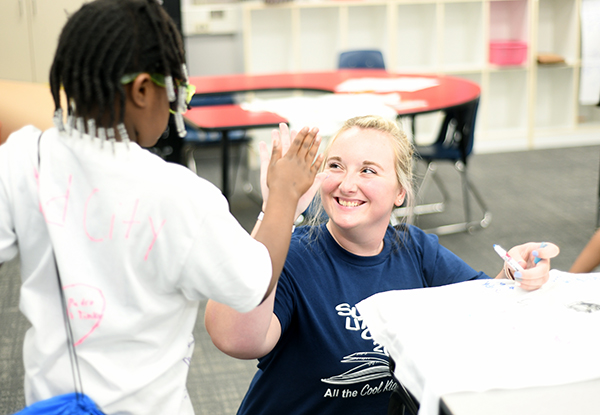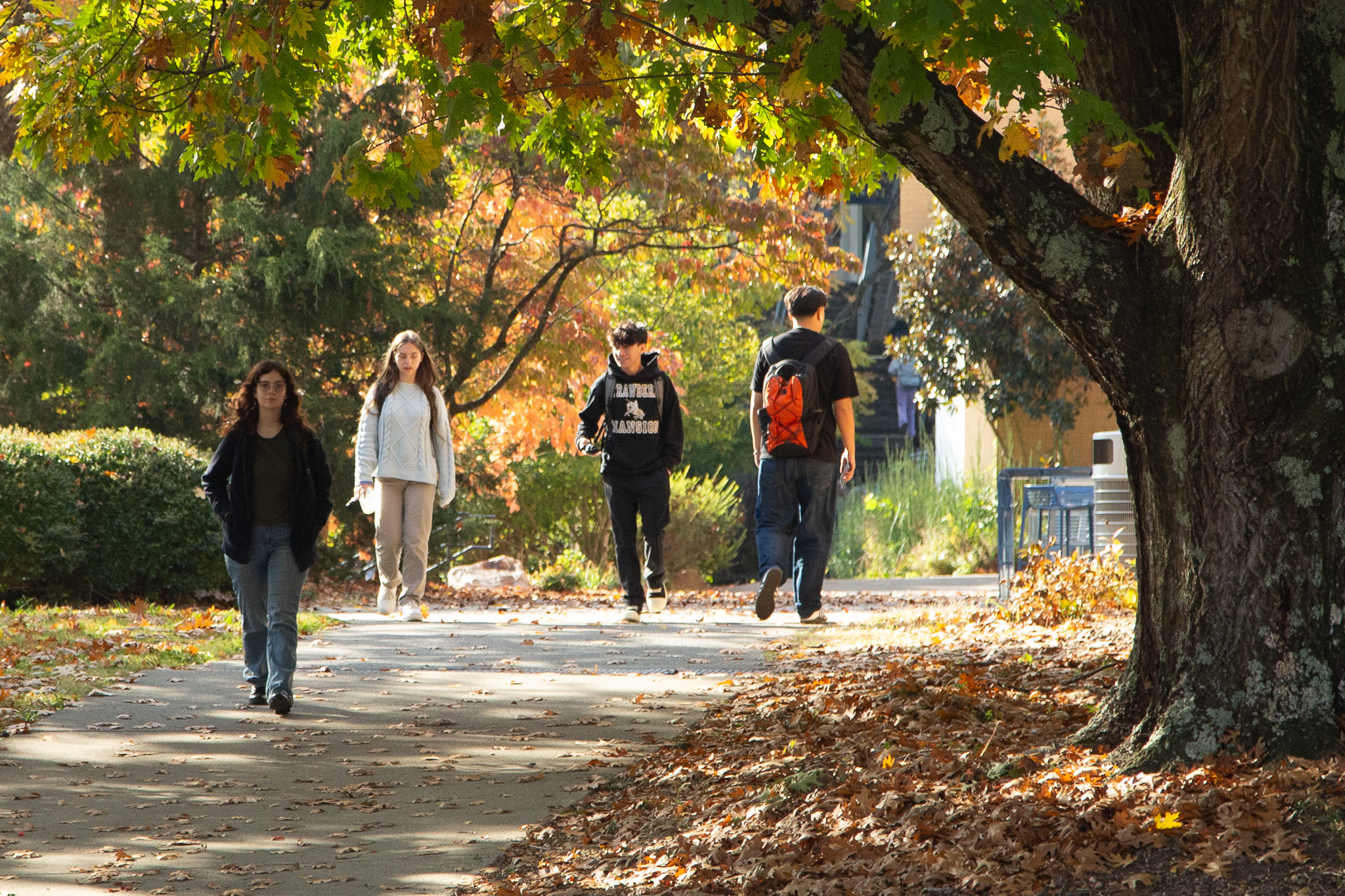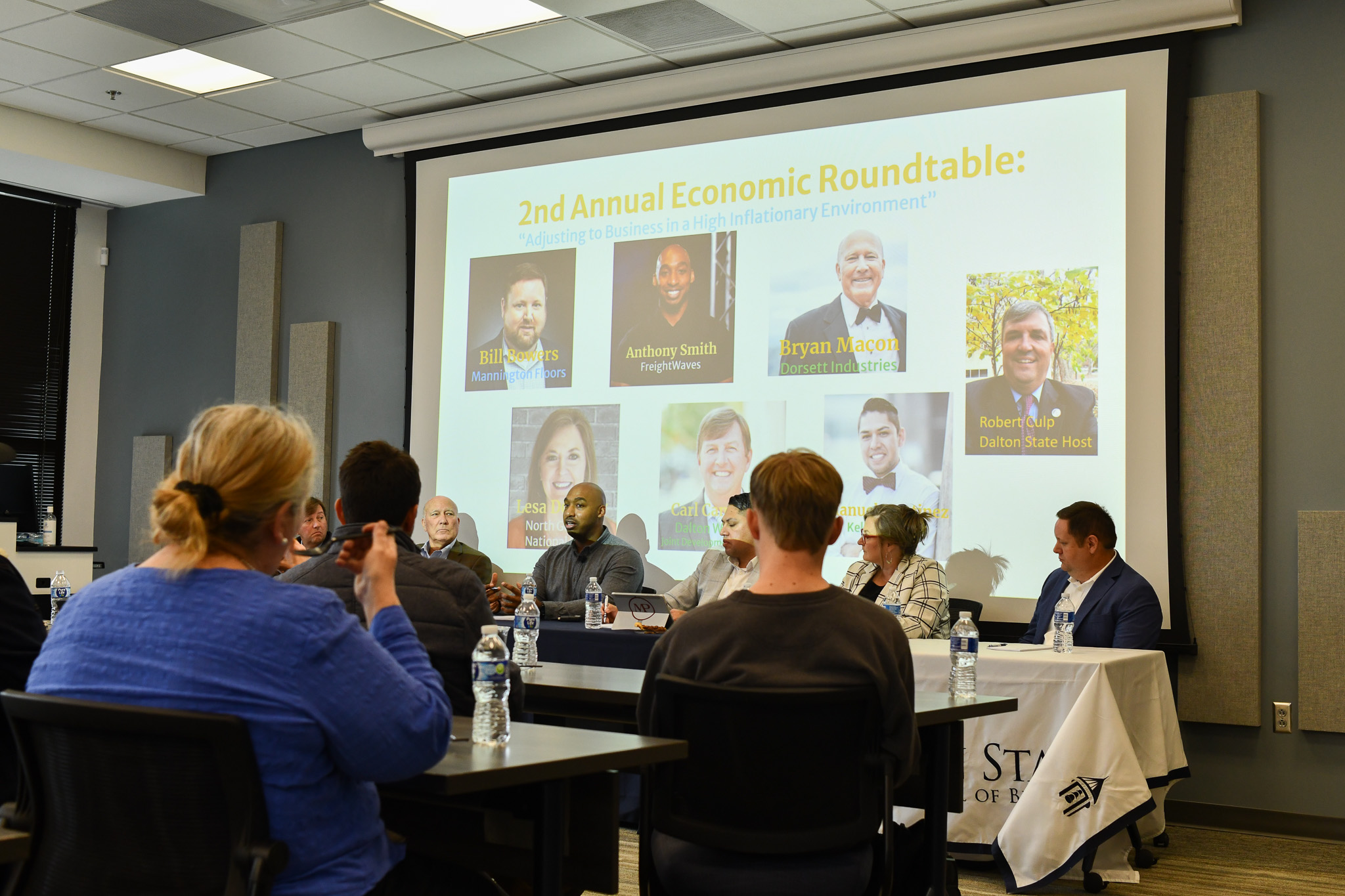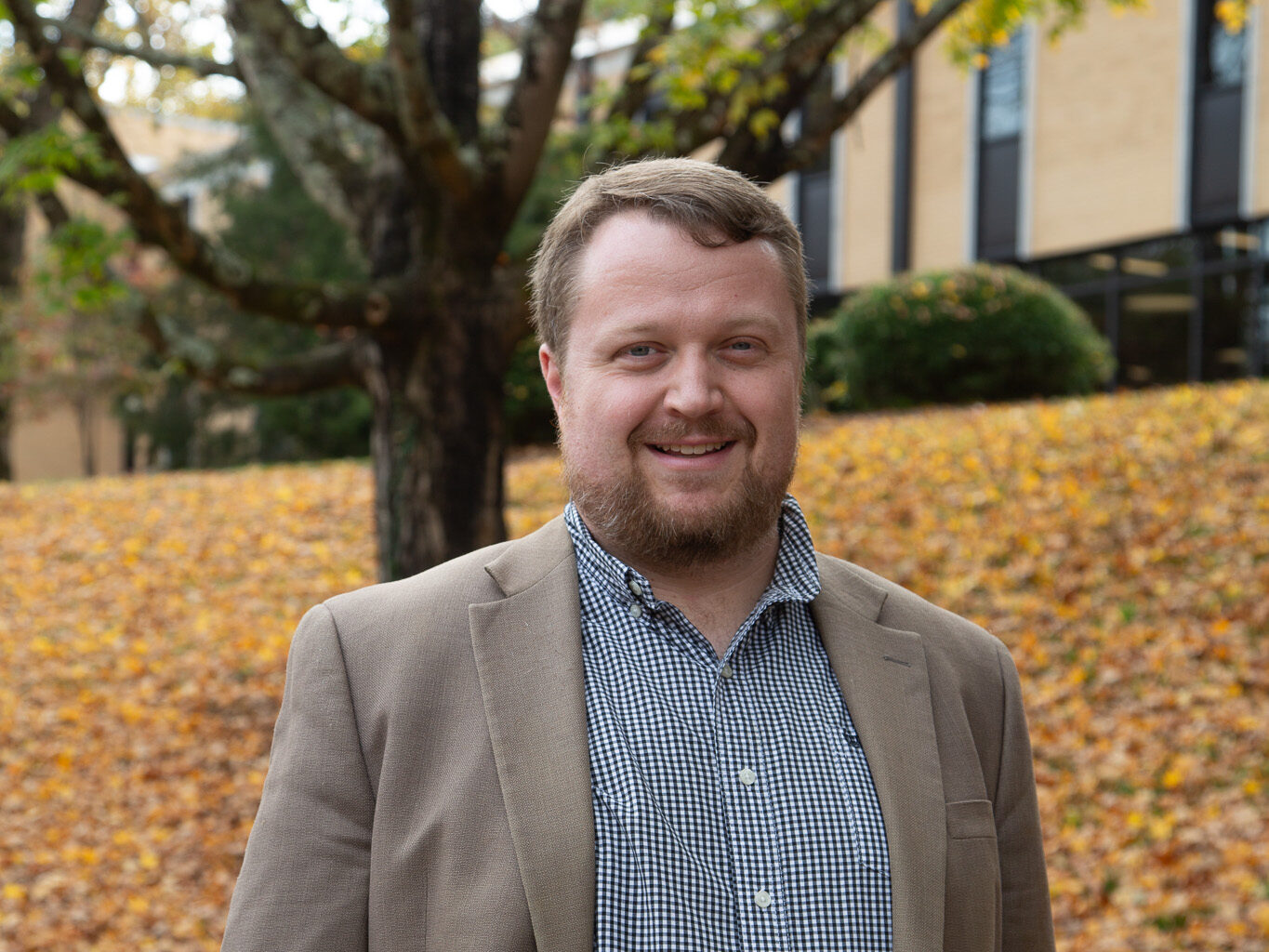Working with a diverse group of students at Kid City has given Lexi Holmes insight on how to relate to children on an individual level.
“We are getting experience teaching kids who aren’t exactly like us,” said Holmes, an elementary education major who will graduate from Dalton State in December. “We’re gaining experience now for something we’ll have to do every day as teachers. Just spending this time here has given me insight on how to relate to different kids. That’s one of the important things Dalton State does for us – get us in the school systems and classes so you have that experience.”
Dalton State’s School of Education partners each summer with Kid City, a program serving kindergarten through fifth-grade students from all Dalton Public Schools’ elementary schools. Kid City, funded by a federal 21st Century Community Learning Centers (21st CLCC) grant, provides academic and enrichment opportunities through after school and summer programming.
Students in Dalton State’s Culture and Education class, a requirement for those seeking the English to Speakers of Other Languages (ESOL) endorsement, plan and teach lessons to the children at Kid City.
“We are grateful for our community partnerships as they help provide a wide range of experiences and opportunities for our students” said Malisa Pedro, the 21st CCLC Kid City program director. “Our students had the opportunity to learn about different cultures from the Dalton State teacher candidates through fun and engaging lessons. In June, teacher candidates visited Kid City and taught our students games from different cultures. Additionally, the students participated in lessons about different cultures led by teacher candidates in July and were given books to keep in their home library to read again and again.”
A recent lesson centered around the book “My Name is Sangoel” by Karen Lynn Williams and Khadra Mohammed where a Sudanese refugee moves to the United States. But no one knows how to pronounce his name.
“His name represents his culture,” said Becky Clinton, an elementary education major who will graduate in spring 2022. “So, we had the children make shirts with their names, representing their culture. While working on the shirts, we got to know one another and share each other’s backgrounds. This gives us the kind of experience we’ll need as teachers to get down under those layers with the kids and build a meaningful relationship with everyone in the classroom.”
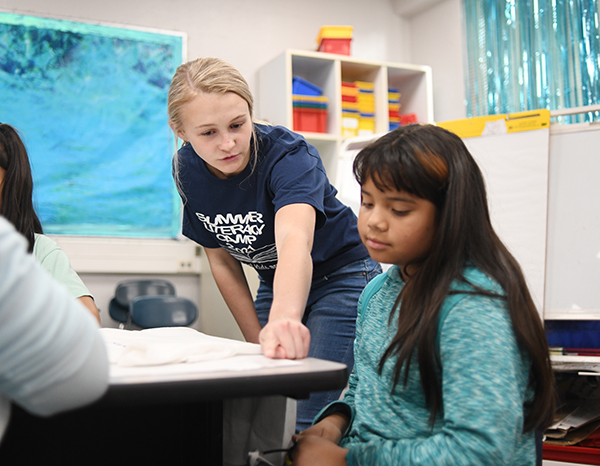
Brian Hibbs, associate professor of education who teaches the Culture and Education class, said it’s important for teachers to learn how to connect with each student and individualize lesson plans. Hibbs teaches his ESOL students how to use funds of knowledge in the classroom. Funds of knowledge are collections of knowledge based in cultural practices that are a part of families’ inner culture, work experience or their daily routine.
“Sometimes English learners are seen as having a deficit,” Hibbs said. “They’re sometimes seen as a blank slate, like we need to Americanize them without figuring out what background knowledge and experience they already have. Using a funds of knowledge inventory matrix shows areas students may already have knowledge or experience in, such as language, math or sports. This is really powerful with culturally diverse learners.”
By the time students graduate from the elementary education program at Dalton State they’ll have had approximately 1,000 hours in the classroom and teaching students.
“Getting that experience with children is invaluable,” Holmes said. “One of the things I’ve wondered is, ‘Will I be able to do this?’ After three semesters in the education program, I have that confidence. I know I can.”


